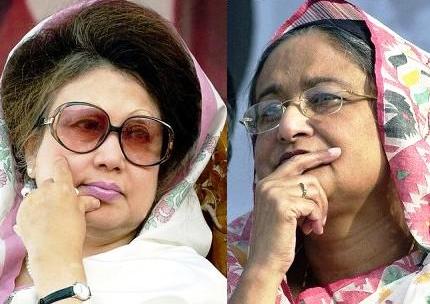Bangladesh is undergoing severe political crisis, with innocent people losing their lives almost every single day. The rolling strikes and blockades not only cause death, but destroy the country’s economy, education, and makes life intolerable. Recently, the education minister has had to reschedule the SSC exam timetables on multiple occasions due to non-stop Hartals called by the BNP-led 20-party alliance. Nobody knows exactly how many more reschedules like this will take place in the recent future. This unexpected rescheduling is completely demoralising for students sitting for the examination.
Yet, the most reprehensible aspect of our present times is not the rescheduling of exams, but the burning alive of people by petrol bombings. On February 3, 2015, at least seven people were killed and 16 burnt after miscreants petrol-bombed a bus on the Dhaka-Chittagong highway in Chouddagram upazila of Comilla. This is perhaps not the latest example of cruel activity, with many more struggling with death in hospital burn units. The life of people is not secure outside their homes, but the population living on daily incomes to survive with their families, must go out to work no matter what – be they strikes, blockades, or any other political agendas. This general populace is the victim of violence and serious physical injury. This political crisis is largely destroying our economy and significantly reducing foreign investment.
Many political researchers, diplomats, and other concerned institutions have been suggesting since the crisis arose, that this situation can only be solved through political dialogue between the two major political parties. Political dialogue referring to the wide range of activities, from high-level negotiations to mediation to community attempts at reconciliation, are all complementary processes and normally run in parallel. Political dialogue is flexible, but the parameters necessitate that dialogue must be political in nature and aimed at addressing threats in a country which can cause a lapse or relapse into violent conflict. The objective of political dialogue is to achieve practical and peaceful solutions to problems. Recently the UN has facilitated political dialogue between political parties in Libya which seems to mitigated political and security crises. However, Libya is not the only example of working to resolve political problems, as many crossed border political issues have in the past, been solved successfully through political dialogue.
After analysing the various characteristics of Bangladeshi political parties and the limitations of political dialogue, I am convinced that such a dialogue will bring no political solution to the ongoing crisis, and can possibly bring more catastrophic violence in Bangladesh. The main limitation of dialogue is that all participants must have the intention to solve the problem by sacrificing for the greater good. Without this intention, the dialogue would end without positive results, ushering in more severe violence. In Bangladesh, the prime directive of the main political parties is to remain in power. By summarising the various speeches and statements of Bangladesh Awami League’s spokespersons, it is clear that they are not in a position to give up their power until the legal validation of present parliament expires by 2019. On the other hand, the present inimitable objective of the BNP-led 20 parties alliance is to bring down the government first and then facilitate a new national election by a caretaker government which is banned by the latest reformation of the Bangladesh Constitution.
No parties care about the life or security of its people or what happens to education or the economy of the country. Coming to power at any cost is the only objective of major political parties. In such a situation, political dialogue could end with more destructive anger, fatal to the citizens of the country.
So if a dialogue is not useful, what else would be effective? Many people are thinking about a military takeover, which could solve the problem, but due to Bangladesh’s strong and brilliant foreign policy and international relations, a military takeover of the present government is not possible nor credible in Bangladesh. So it is now a question of whether there is any solution at all.
Will we continue to lose our lives for no reason? Will the economy be buried under for the recent future? Is the country moving towards its darkest period? These questions do not have any practical answer. But our increased awareness can reduce public casualty. What if we refuse to tolerate this? What if the student does not accept reschedulings? Or the businessman does not tolerate economic losses for political conflict? Massive public awareness and reaction is the only quickest practical solution to this crisis. The UN should come forward to assist in solving the problem. Political casualty should affect politicians in the political arena, and not the public.
ATM Haidar Khan is a researcher on South Asian Politics and Political Economy, and is a graduate of the University of Greenwhich, UK.
Source: bdnews24

